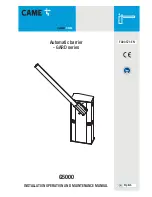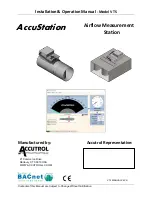
Description varix 200/varix 14 (DECT)
2 - 3
2 Planning a cordless communications network
2.3
Preparation
2.3.1
Requirements
The following documentation and measuring equipment should be assembled prior to instal-
lation:
- True-scale plan of the building / the site
- A reference base station (measuring fixed part)
- A tripod/stand and power supply / battery for the FPs
- An M 2 portable part
- Battery charging equipment (if necessary)
- Spectrum analyzer (if necessary)
A spectrum analyzer is not always required. It is needed as a means of verifying sources sus-
pected of interfering with the DECT frequencies.
Plan of the building
- For planning purposes a plan of the building or the site is absolutely necessary. If none
exists, then one must be drawn up.
If a plan has to be made, then simplify the buildings/site to rectangular areas. Note down
things which could affect the hop.
- Fire walls define the perimeter of each part of a building.
Fire walls and other strongly-built walls absorb high-frequency energy so strongly that the
field illumination must recommence on the other side of the respective wall.
- In the plan, indicate areas of uniform construction.
Often, larger buildings are constructed in sections/phases. Different materials and room
spacing can often have an effect on the radio signal propagation within the various sec-
tions of the building.
- Indicate in the plan areas which are put to a common use.
On-site inspection
Inspecting the site and measuring propagation conditions are an absolute necessity. The
engineer can acquaint himself with the topographical nature of the building / the site, can
detect areas which may give rise to problems and will receive a first impression of the type of
use the building / the site is put to (e.g. extremely heavy telephone usage or maybe unpopu-
lated spaces). Fill out the checklist when inspecting the site. This will serve as a basis for fur-
ther planning.
A checklist must be completed for every part-area. Make sufficient copies.















































